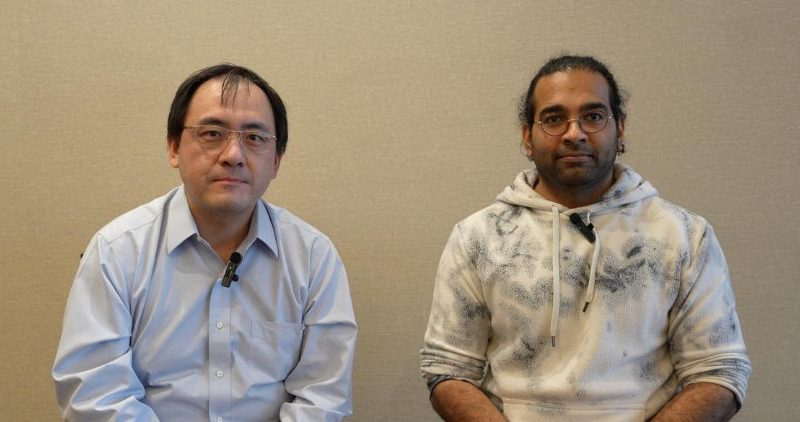Netflix of RNA: Biostate AI grabs $12M to make diseases as predictable as streaming TV

Current diagnostic methods provide poor predictive accuracy and limited disease prognosis and treatment personalisation. This challenge stems from their reliance on a few biomarkers and trial-and-error approaches, particularly for complex, heterogeneous diseases like multiple sclerosis and leukaemia. Biostate AI tackles these limitations by combining high-throughput, cost-effective RNA sequencing with sophisticated AI models to analyse comprehensive, multi-dimensional gene expression data from patient samples.
Today, Biostate AI announces a $12M Series A funding round led byAccel, with participation fromGaingels, Mana Ventures, InfoEdge Ventures, and existing investorsMatter Venture Partners, Vision Plus Capital, and Catapult Ventures. The company’s seed round attracted notable angel investors, including Dario Amodei (CEO,Anthropic), Mike Schnall-Levin (CTO, 10x Genomics), and Emily Leproust (CEO, Twist Bioscience).
The firm has raised over $20 million. It is expanding its paying institutional customer base through a network of 100+ pilot projects across various disease indications, including leukaemia (Cornell) and multiple sclerosis (Accelerated Cure Project). The new funding will support the company’s mission to unlock affordable and integrated precision medicine, beginning with RNA sequencing (RNAseq) services for US-based molecular research.
Biostate AI was founded in 2023 byDavid Zhang, a former Rice University professor and serial biotech entrepreneur, andAshwin Gopinath, a former MIT assistant professor and experienced technology founder. Based in Houston, Texas and Palo Alto, California, Zhang previously co-founded NuProbe and Torus Biosystems, while Gopinath co-founded Palamedrix and iuno.bio, bringing deep expertise in bioengineering, AI, and scalable biotechnology platforms.
The founders established Biostate AI with a clear mission: to tackle the persistent challenge of making biology and healthcare more predictable. This mission, deeply influenced by Gopinath’s personal experience with his wife’s battle with leukaemia, is a testament to the company’s commitment to improving healthcare. Their vision extended to building something lasting, inspiring their Netflix-style self-sustaining business model powered by proprietary AI.
Biostate AI aims to transform disease progression and drug response forecasting and significantly improve patient outcomes. Its mission is to empower clinicians, researchers, and drug developers to make faster, more accurate, and individualised decisions, ultimately leading to better patient outcomes and accelerating therapeutic innovation.
With locations in Houston, TX, Palo Alto, CA, Bangalore, India, and Shanghai, China, Biostate AI collaborates globally with leading hospitals, academic researchers, and biotech/biopharma companies. Since launching its commercial offering two quarters ago, Biostate has processed RNAseq for over 10,000 samples from more than 150 collaborators and customers at leading institutions. The startup has secured agreements to process hundreds of thousands of unlabeled samples annually, rapidly expanding its dataset and advancing AI development.
Using RNA sequencing data, Biostate AI develops generative AI that predicts human disease and drug response evolution. Its patented wetlab technologies, including BIRT, enable affordable and scalable collection of vast transcriptomic and genomic data. At its core, the biotech creates generative AI to predict disease progression and treatment responses based on RNA sequencing.
While LLMs like ChatGPT learn patterns from text, Biostate’s AI models identify expression signatures across thousands of genes correlating with specific disease states and treatment responses. This allows their models to detect subtle molecular changes that precede clinical symptoms by weeks, months, or even years, enabling earlier intervention.
“Rather than solve diagnostics and therapeutics as separate, siloed problems for each disease, we believe that modern and future AI can be general purpose to understand and help cure every disease,” said David Zhang, co-founder and CEO of Biostate AI, and former Associate Professor of Bioengineering at Rice University. “Every diagnostic I’ve built was about moving the answer closer to the patient. Biostate takes the biggest leap yet by making the whole transcriptome affordable.”
The AI developed from this wealth of RNAseq data will better guide clinicians in making optimal treatment decisions. Biostate has already achieved internal proof-of-concept success in predicting disease recurrence in leukaemia patients. The company plans to expand its clinical partnerships in oncology, autoimmune disease, and cardiovascular disease.
Until now, cost and analytical barriers have limited a comprehensive analysis of all RNA transcripts. By removing these industry bottlenecks, the Biostate co-founders realised they could transform a more efficient RNAseq operation into a one-stop shop for precision medicine.
Few molecular biology labs fully utilise existing RNA datasets or harness the power of machine learning for analysis. Conventional RNAseq faces three key limitations:
Biostate addresses these challenges through bio-chemical innovations and GenAI tools, packaged in a self-sustaining business model. The company has developed and patented novel biomolecular technologies that convert tissue samples into RNAseq data at nearly one-tenth the traditional cost, working effectively with fresh and decades-old tissues. Their proprietary BIRT technology achieves this through innovative multiplexing that enables simultaneous sample processing, while their PERD methodology separates signal from noise without compromising quality. This allows researchers to analyse 2-3 times more samples within existing budgets, significantly expanding experimental possibilities.
These lower costs benefit Biostate internally, enabling experiments at a fraction of competitor costs. This economic advantage facilitates the collection of millions of consented, de-identified RNAseq profiles globally, similar to how OpenAI trained their base models on internet data. This massive dataset powers increasingly sophisticated generative AI models, identifying patterns across disease states and tissue types.
Biostate’s unified workflow and consistent methodology standardise experiments across different timepoints and batches. This uniformity enables their AI to learn the “grammar of biology” without the confounding batch effects typical in multi-site studies. The standardisation also allows them to extract meaningful signals from small, de-identified data cohorts with detailed clinical labels, which they use to fine-tune their foundation models for specific applications.
The result is an integrated pipeline that establishes Biostate as a one-stop shop for molecular medicine. Their system transforms biological samples into comprehensive transcriptome data, viewable holistically alongside extensive datasets to generate actionable clinical insights under one roof without multiple specialised vendors. The company’s stock includes sophisticated generative AI tools like Quantaquill for converting analysis results into publication-ready manuscripts, further streamlining research workflows.
“Just as ChatGPT transformed language understanding by learning from trillions of words, we’re learning the molecular language of human disease from billions of RNA expressions from millions of samples,” said Ashwin Gopinath, co-founder and CTO of Biostate AI and a former MIT assistant professor. “We’re doing for molecular medicine what large language models did for text—scaling the raw data so the algorithms can finally shine.”

Published on Other News Site

















